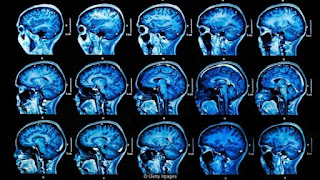Diagnosis of Multiple Sclerosis
There are no specific tests for MS. Instead, a diagnosis of
multiple sclerosis often relies on ruling out other conditions that might
produce similar signs and symptoms, known as a differential diagnosis.
Doctor is likely to start with a thorough medical
history and examination. These tests may be recommended by doctor:
- Blood Tests, to help rule out other diseases with symptoms similar to MS. Tests to check for specific bio-markers associated with MS are currently under development and may also aid in diagnosing the disease.
- Lumbar Puncture (Spinal Tap), in which a small sample of fluid is removed from your spinal canal for laboratory analysis. This sample can show abnormalities in antibodies that are associated with MS. Spinal tap can also help rule out infections and other conditions with symptoms similar to MS.
- MRI, which can reveal areas of MS (lesions) on your brain and spinal cord. You may receive an intravenous injection of a contrast material to highlight lesions that indicate your disease is in an active phase.
- Evoked Potential Tests, which record the electrical signals produced by your nervous system in response to stimuli. An evoked potential test may use visual stimuli or electrical stimuli, in which you watch a moving visual pattern, or short electrical impulses are applied to nerves in your legs or arms. Electrodes measure how quickly the information travels down your nerve pathways.
In most people with relapsing-remitting MS, the diagnosis is
fairly straightforward and based on a pattern of symptoms consistent with the
disease and confirmed by brain imaging scans, such as MRI.
If you have done research on Multiple Sclerosis you can present your research at #Alzheimers 2018 by submitting your work at https://bit.ly/2HlLuhx. To Know more about the diagnosis of Multiple Sclerosis, Join us at the International Conference on #Alzheimers, #Dementia and Related #Neurodegenerative Diseases at Madrid, Spain on 27-28 August, 2018.




Comments
Post a Comment